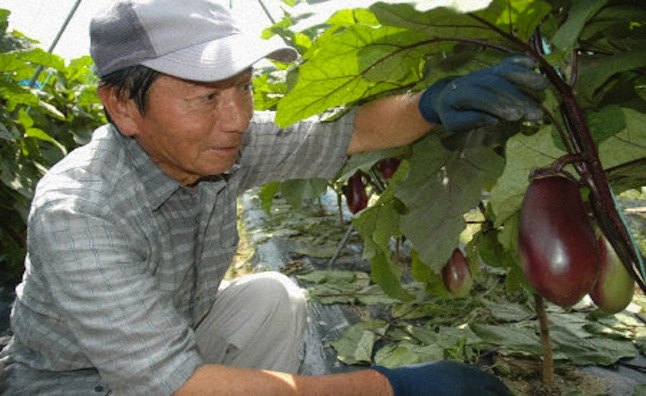Toyota Japan Retirees Spending Golden Years Farming
In Japan’s Toyota City, retirees from the automaker that loans it’s name to the city are spending their golden years working on farms.
Toyota employees are required to retire from full-time work at 60 years-of-age. Expecting a tremendous quantity of retired baby-boomers with an excess of spare-time, Toyota City launched an agriculture education program in 2004 for retirees. One city planner quantified the number of retiring Toyota employees as “a massive number.”
It has been quite a success with over 250 graduates now farming around the town. Not only does this program give the retirees a reason to be active on a daily basis but it also solves the issue of the glut of disused farmland in and around Toyota City. Young people in Japan, like all around the world, are leaving family farms for city life. The program creator is quite pleased with this solution to both issues. “We came up with this project, hoping the retirees could stay healthy through taking up farming after leaving their jobs.”
Kenji Nakahara is 71-years-old, and started working at Toyota when he was 23. He worked there until he reached mandatory-retirement at 60 and then continued on for five years by working under temporary status. He was displeased with this lifestyle by 2006. “Every day was dull and boring,” he says. With no agricultural background or experience, he enrolled in the two-year training program being offered by Toyota City and a local agricultural co-operative.
Nakahara is now quite pleased with his new job, “the more effort I put in, the better the vegetables become.” He grows 15 different varieties of vegetables and his farm is profitable to a level that delights the former-Toyota employee. He laughs as he says, “I don’t get pocket money from my wife.” In Japan, wives generally control the finances of their households.
The annual fee for this training program is about 10,00 yen, which is about $120. The only thing students need to provide is a pair of boots and raincoat.
[Source: Kyodo News]
More by Nick Dasko
































Comments
Join the conversation